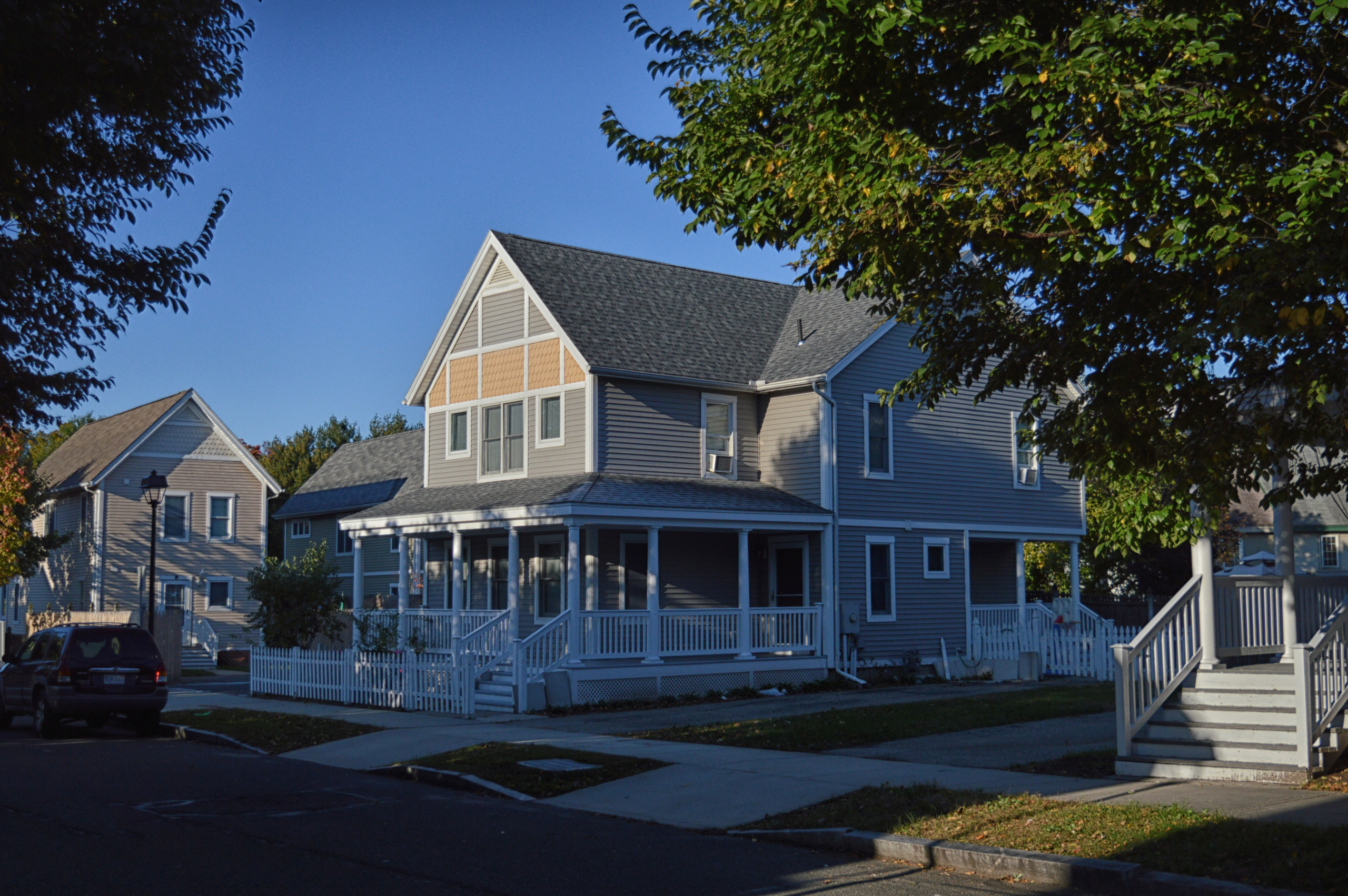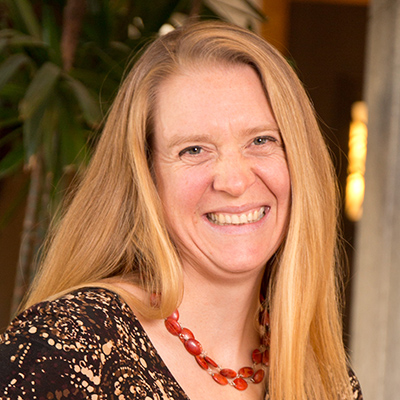
Energy Efficiency for Everyone: so we can save more and pollute less
To save energy and reduce pollution, the Maryland General Assembly needs to update and improve EmPOWER Maryland, the state’s energy efficiency program.
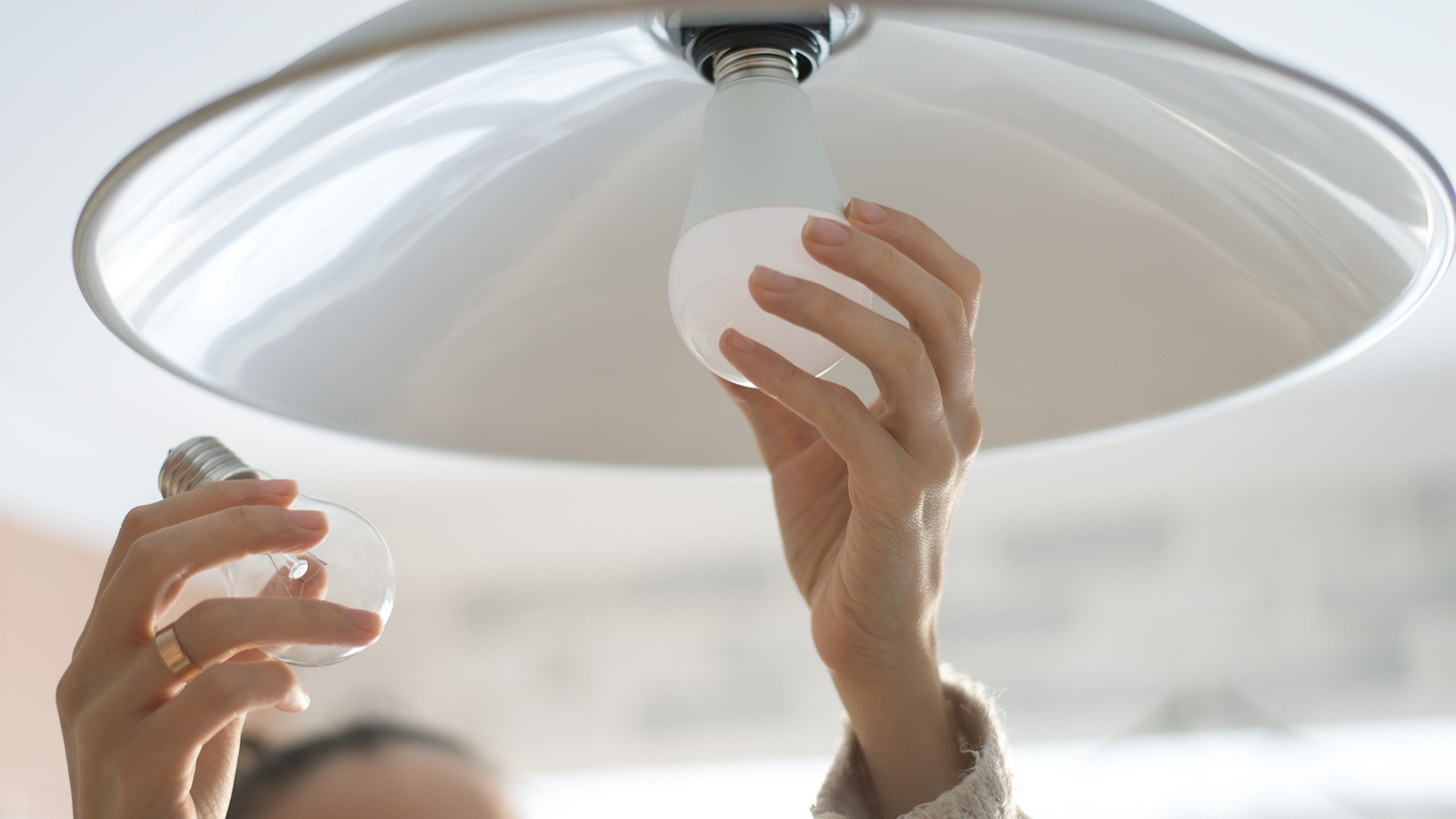
The 2024 General Assembly is expected to consider an update to the state’s energy efficiency program, EmPOWER Maryland, which is great news for Maryland energy consumers. A similar bill passed the House of Delegates in 2023, but didn’t receive a vote in the State Senate.
EmPOWER Maryland
The EmPOWER Maryland Energy Efficiency Act of 2008 created the EmPOWER program to incentivize energy efficiency and conservation efforts. EmPOWER includes a utility run program of rebates, weatherizations and other efficiency updates, as well as similar programs targeted at limited income consumers, which are run by the state’s Department of Housing and Community Development (DHCD). In 2023 Gov. Moore signed a new law to improve the DHCD run program.
As outlined in Maryland PIRG Foundation’s 2023 report, energy efficiency is one of the smartest investments the state can make.
We’re calling on the General Assembly to:
- Expand EmPOWER’s successful discounts and rebates for energy audits, weatherization and efficient appliances by adding new incentives for making the switch to efficient, electric appliances and heating.
- Set pollution reduction targets. Direct the Public Service Commission to set greenhouse gas emission reduction goals to align the program with the state’s climate goals.
- Stop spending ratepayer dollars on subsidies for polluting gas appliances and home heating.
- Deliver savings directly to Maryland households by encouraging utilities to invest in in-home improvements and requiring them to achieve 80% of goals from in-building savings.
- Expand access for low-income households to state and federal funds for energy efficiency and whole-home retrofits by enabling fuel switching and hiring multilingual community outreach specialists.
- Reduce cost to ratepayers by rightsizing utility profits and ensuring any future incentives and penalties are tied to performance.
Through strategic updates to EmPOWER Maryland we can build on a legacy of success to deliver even more savings for Marylanders.
A history of success
According to the Maryland Public Service Commission, since 2008, EmPOWER Maryland has:
- Created lifetime savings of over $12.7 billion from an investment of $3.5 billion in efficiency.
- Reduced greenhouse gas emissions by the equivalent of at least 9.6 million metric tons of carbon dioxide, equal to taking 2 million cars off the road for a year.
- Provided Marylanders with free or discounted energy audits, weatherization, and efficient appliances and provided businesses with discounts and incentives for energy efficient upgrades.
Time for an update
Space heating and cooling accounts for more than half of home energy use, yet most Marylanders are using old, inefficient technology to heat and cool their homes. Almost half of Marylanders still use fossil fuels for heating and 25% are using electric furnaces and highly inefficient baseboard heat.
Maryland has made clear its intention to shift away from fossil fuels to power our homes and building to help reach ambitious goals to reduce greenhouse gas emissions 60% from 2006 levels by 2031. Yet, EmPOWER Maryland provides zero incentives to support households switching from gas to highly efficient electric heat pumps and still subsidies inefficient gas-burning furnaces.
A heat pump is an all-in-one electric HVAC system that can both heat and cool a building. This equipment is highly efficient. The latest models use an average of 18% less electricity for cooling than central AC units in the Mid-Atlantic and are two to three times more efficient than gas furnaces even amid the depths of winter weather. They are now suitable for all Maryand climates and they can last 15 years or more.
According to a recent report from RMI, GHHI, CCAN and CASA, in Maryland, fossil fuel equipment in residential and commercial buildings emits more than three times as much health-harming NOx as all the state’s power plants put together.
Rightsizing utility profits
The financing model for EmPOWER in place through 2023 has raised the costs for ratepayers over time without maximizing energy savings. Maryland utilities have profited significantly more than utilities in other top states for efficiency, driving up costs to ratepayers.
- In recent years Pepco has earned a return equivalent to about 16% of its budget while BGE and Potomac Edison earned returns equivalent to over 20% of their annual budgets.
- For reference, efficiency administrators in Massachusetts, Vermont and Rhode Island, all earn returns equivalent to 5% or less of their program budgets.
- Maryland utilities also earn a much higher return on EmPOWER spending than on their normal expenses: for example, the PSC set a 9.5% return on BGE’s costs of providing electricity service for the 2021-2023 cycle.
The PSC has rightfully moved away from this funding mechanism for the program, but it will take a number of years for ratepayers to pay off existing debt. Fortunately, the legislature can reduce the rate of the return on that remaining debt, saving ratepayers in a big way. In the future we want to ensure that profits, if any, are in-line with other top performing states and any financial incentives should be tied to performance. If ratepayers are funding incentives, utilities should also be penalized for substandard performance.
Saving more by polluting less
We need to update EmPOWER to align with the state’s climate goals. Our goal is simple – adjust the program to prioritize reducing pollution while maintaining the program’s focus on efficiency – because the cleanest energy of all is the energy we don’t use. We’re pushing the utilities to prioritize long lasting savings like insulation and good windows over quick fixes.
Now is the time to do this work. There are billions of dollars in new federal funding to help people improve the efficiency of their homes and transition to clean, efficient electric power and home heating.
The Moore Administration and his agencies, the Public Service Commission and our legislators in Annapolis understand the need for reform, but Maryland utilities, who profit off of selling energy, won’t support energy efficiency on their own and will be pushing to profit off the program as much as possible.
Resources:
EmPOWER Reform Virtual Legislative Kick-Off (VIDEO)
Watch to learn more about our priorities for the campaign, hear about why so many organizations have chosen EmPOWER as a legislative priority for the 2024 session, and learn how you can get involved.
Clean Energy Home Toolkit
Guides & resources for weatherizing your home, cutting energy bills, buying an electric car, and information on the rebates & incentives in the Inflation Reduction Act.
Energy Efficiency: How to access your utility’s EmPOWER program
If you are interested in learning more about incentives and rebates under EmPOWER or getting an efficiency audit or checkup for your home, check out the EmPOWER progam website for your utility company.
Topics
Authors
Johanna Neumann
Senior Director, Campaign for 100% Renewable Energy, Environment America
Johanna directs strategy and staff for Environment America's energy campaigns at the local, state and national level. In her prior positions, she led the campaign to ban smoking in all Maryland workplaces, helped stop the construction of a new nuclear reactor on the shores of the Chesapeake Bay and helped build the support necessary to pass the EmPOWER Maryland Act, which set a goal of reducing the state’s per capita electricity use by 15 percent. She also currently serves on the board of Community Action Works. Johanna lives in Amherst, Massachusetts, with her family, where she enjoys growing dahlias, biking and the occasional game of goaltimate.
Emily Scarr
State Director, Maryland PIRG Foundation
Emily directs strategy, organizational development, research, communications and legislative advocacy for Maryland PIRG. Recently, Emily helped win small donor public financing in Montgomery and Howard counties, and the Maryland Keep Antibiotics Effective Act to protect public health by restricting the use of antibiotics on Maryland farms. Emily also serves on the Executive Committees of the Maryland Fair Elections Coalition and the Maryland Campaign to Keep Antibiotics Working, and the Steering Committees for the Maryland Pesticide Action Network and Marylanders for Open Government. Emily lives in Baltimore with her husband and dog.
Find Out More

Is all computing worth doing?
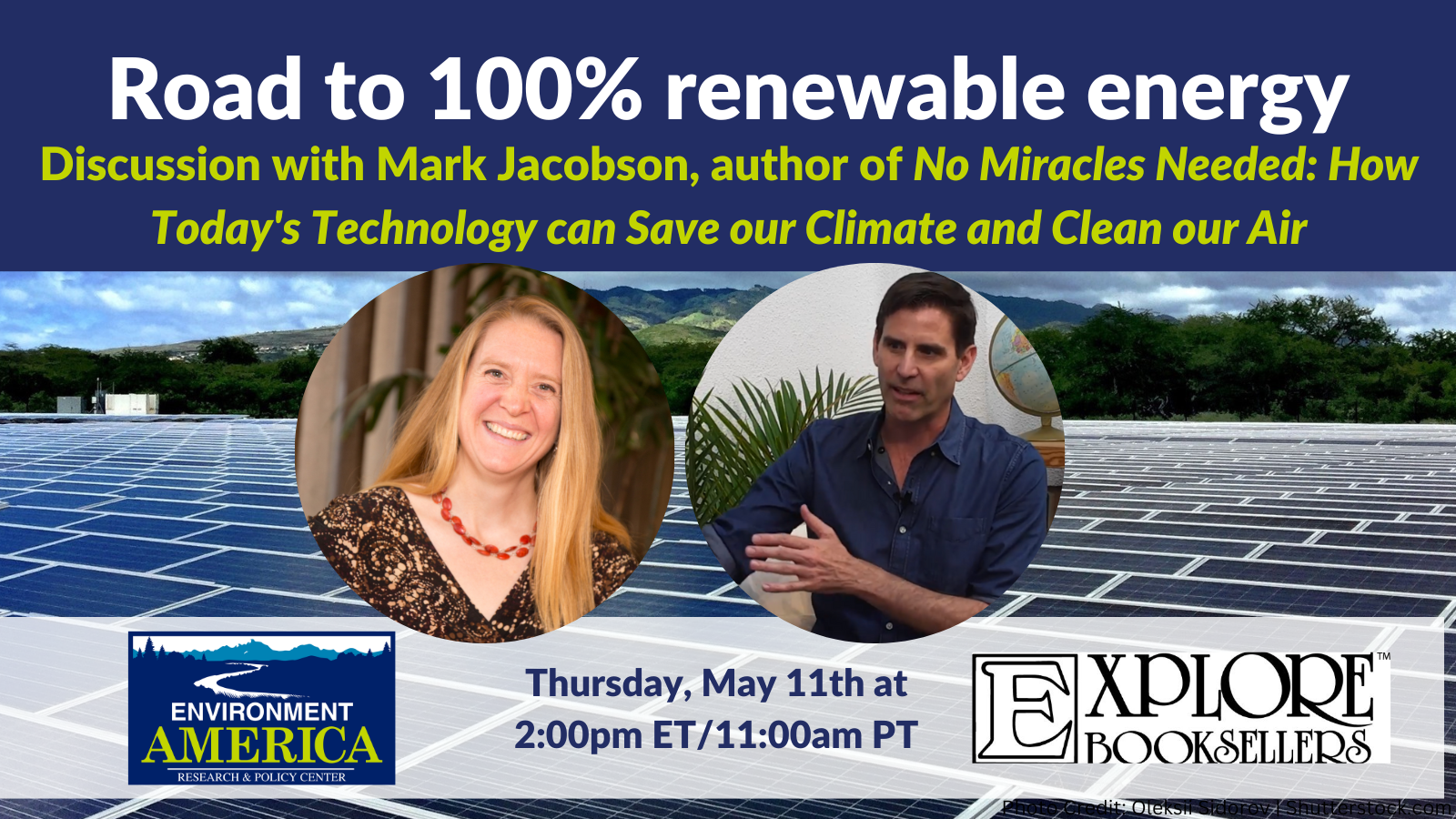
How to get to 100% clean energy with today’s technologies
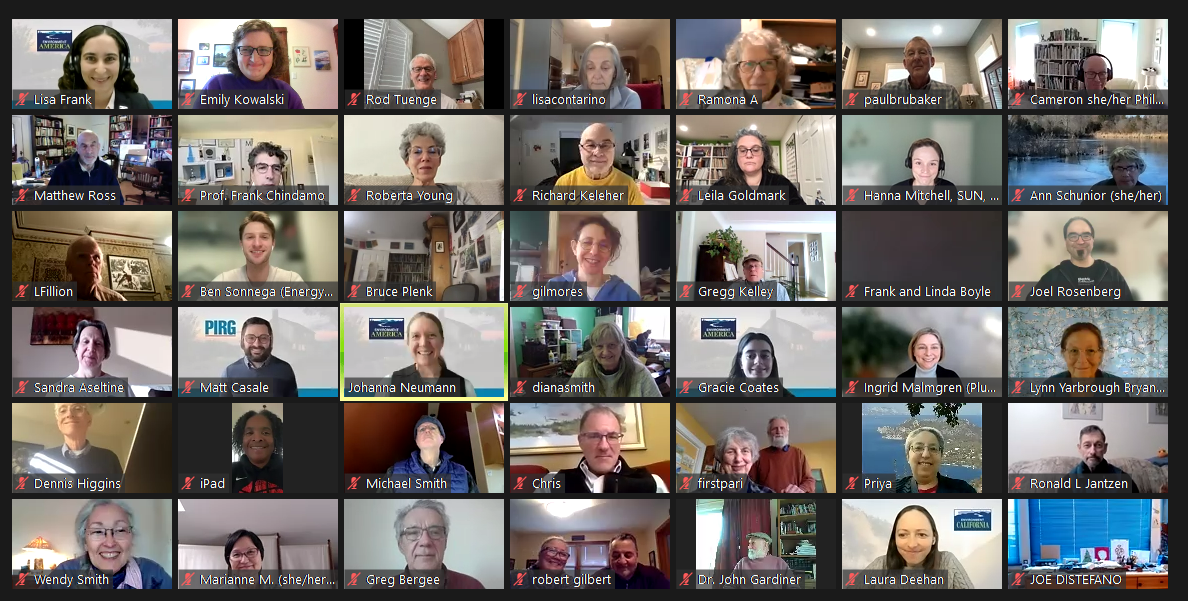
You have the power: how to electrify your home with new tax credits
